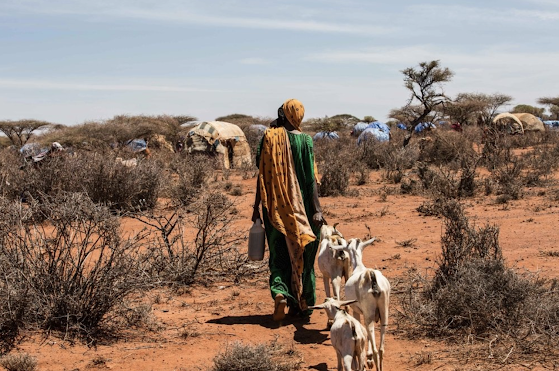Uncertainty is Everywhere
In last week’s post we saw how climate change could have quite drastic implications for water resources in Africa. However, there are many uncertainties regarding these predictions and how they will impact both rural and urban communities across the continent. These uncertainties are wide and range from the limitations involved with hydrological modelling in Africa to the uncertain nature of changing water demand based on socio-economic conditions (Kingston and Taylor 2010; Carter and Parker 2009). Therefore, in this post I want to provide a more holistic assessment of the complexities of future climate change and socio-economic impacts on water resources in Africa and its importance in informing better decisions on sustainable water use.
The limitations associated with climate and hydrological modelling can present significant challenges for acquiring reliable projections of future water resources (Legesse et al. 2003). In Africa one of the main challenges with creating accurate models is the lack of good quality data available (Schuol et al. 2008). This has been largely down to the low levels of investment and poor maintenance of hydrometeorological networks across the continent (Botai et al. 2015). This has often led to hydrological modelling studies in Africa where the spatial distribution of data is inadequate to accurately assess climatic phenomena (Schuol et al. 2008). It suggests the need to prioritise the funding of robust monitoring networks as the first step in providing a better representation of future hydrological and climatic conditions (like in Figure 1).
Alternatively, as well as improving our knowledge of the earth system processes in Africa, it is also important to become more aware of the uncertainties surrounding some of the other pressures on water resources. Climate change is expected to interact with various socio-economic stressors to influence water supplies (Global Risk Insights 2020). Hence, understanding the complexities of these scenarios seems appropriate to determining best water management strategies. Based on UN figures, the African population is expected to grow rapidly over the first half of the 21st century, with the population also becoming increasingly urban during this period (Figure 2) (Brookings 2020). Therefore, with the greater demand on water resources alongside climate change, both northern and southern Africa is expected to be severely water stressed by 2050 (Carter and Parker 2009). However, it should be noted that there is still a degree of uncertainty in these types of socio-economic and climatic scenarios based on limited knowledge of future trends and impacts of the implementation of mitigation strategies (Alcamo et al. 2010). This suggests the importance of having up-to-date inter-disciplinary research to understand how multiple stressors will interact to influence water resources in Africa.
Overall, there appears to be numerous factors that can influence the accuracy of climate change and socio-economic impacts on Africa’s water supplies. In fact, many future hydrological and climatic effects are difficult to predict with a high degree of certainty based on the current knowledge we have. This suggests the importance of investing in further research and tools that take an integrated approach to water resource management that can better aid in Africa's development.




Comments
Post a Comment